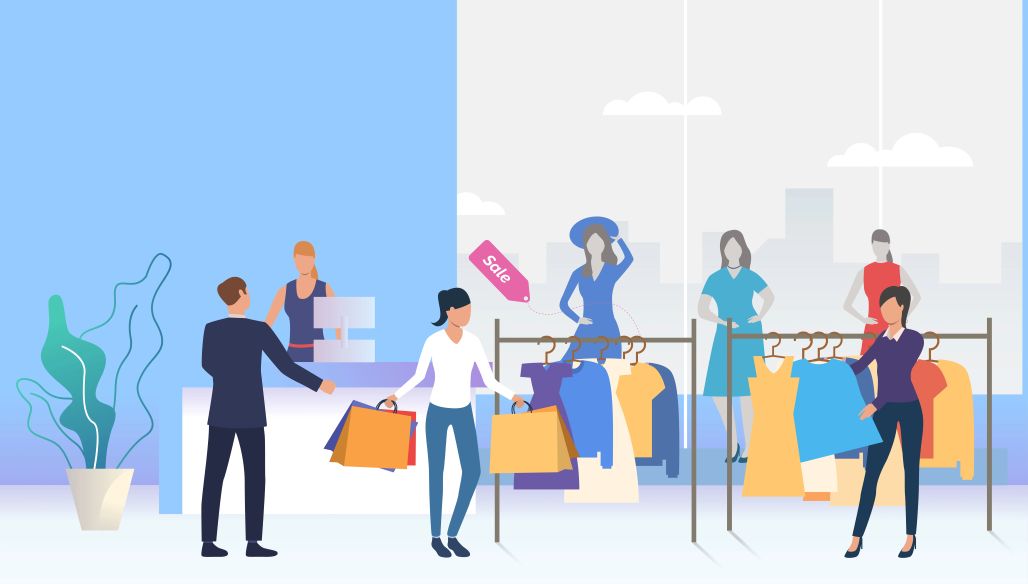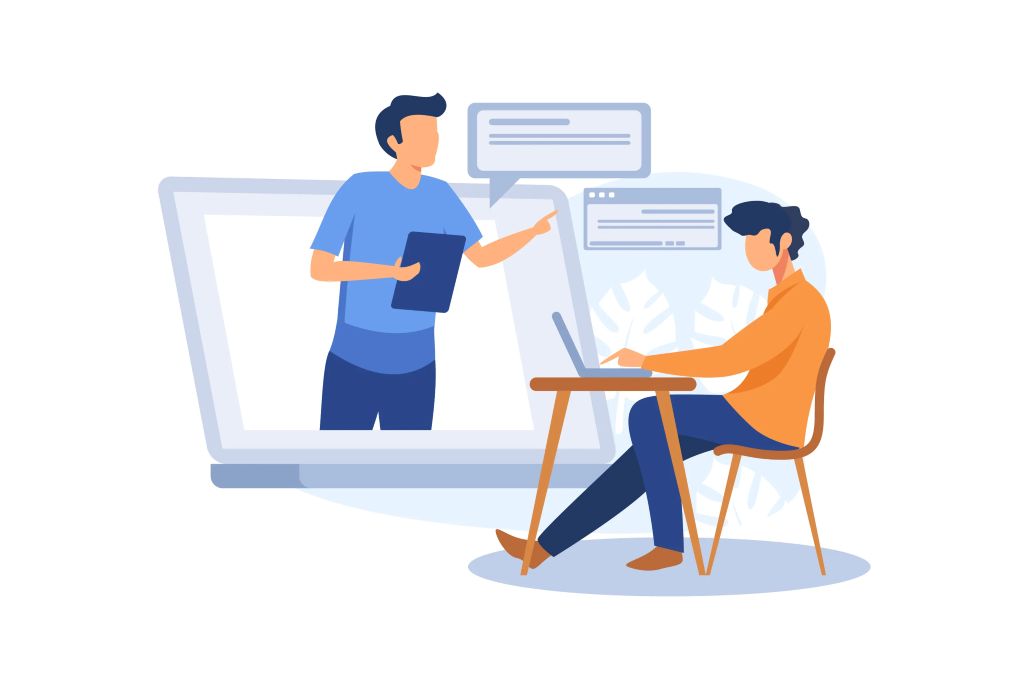
In retail, every role is different — a store associate greets customers and manages the POS, a manager oversees merchandising and compliance, while seasonal staff handle quick service and promotions. Generic training falls short because it doesn’t address the unique responsibilities of each role. That’s where role-based training comes in, ensuring every employee learns exactly what they need to succeed.
Delivering such training consistently across multiple stores is not easy, but this is where adopting an LMS for retail training becomes a game-changer. Platforms like Calibr Learn make it possible to personalize learning journeys by role, deliver content at scale, and track impact in real time. The result? Faster onboarding, higher sales, and better customer service.
What Is Role-Based Training in Retail?
Role-based training customizes learning paths based on an employee’s job function. For example:
Sales associates focus on product knowledge, customer interaction, and upselling.
Store managers get modules on visual merchandising, compliance, team leadership, and loss prevention.
Seasonal staff receive quick micro-lessons on POS systems, safety, and customer service basics.
Using a retail LMS like Calibr Learn, you can assign these learning paths automatically. Its personalized learning paths feature ensures employees only see what’s relevant to their role — no wasted time, no irrelevant modules.

Why Retail Needs a Role-Based LMS
Retailers face high turnover, tight schedules, and rapid product changes. Traditional training methods can’t keep up. A retail LMS software solves these issues by offering:
Consistency: Every new hire learns the same processes across all locations. With Calibr Content Hub, the latest policies and product updates are available centrally, so stores stay aligned.
Speed & Agility: Roll out training instantly for new launches. Using Calibr Craft, you can quickly design content that’s role-specific and push it across stores.
Flexibility: With mobile learning and offline access, Calibr ensures employees can learn on-the-go, even during short breaks.
Engagement: Gamification in Calibr keeps learning interactive with badges, points, and challenges.
Data & ROI: Real-time analytics in Calibr track completion, engagement, and proficiency — giving managers clarity on training effectiveness.
External studies confirm the advantage: eLearning reduces training time by 40-60% compared with classroom learning, while retention improves by 25-60% (scoop.market.us).
Features That Power Role-Based Retail Training

When evaluating the best retail LMS, it’s not just about having content available online — it’s about whether the platform can truly support the unique demands of retail. The right LMS for retail training needs to offer flexibility, relevance, and measurable outcomes. Here are the must-have features:
Personalized Learning Paths – A powerful LMS for retail training adapts content to each role. For instance, a cashier doesn’t need detailed merchandising training, while a store manager requires leadership modules. Calibr automatically assigns personalized learning paths based on role, ensuring training is relevant, efficient, and impactful.
Microlearning – Retail employees, especially seasonal hires, can’t sit through long courses. They need quick, focused modules that fit into busy shifts. Calibr breaks down lessons into bite-sized, digestible learning units that staff can complete in minutes. This approach boosts retention and ensures staff quickly learn essentials like customer greetings, promotions, or product handling.
Mobile Learning – In retail, employees are rarely sitting at a desk. They’re on the floor, interacting with customers, or managing stock. A retail LMS software like Calibr provides mobile-optimized content with offline access, so staff can train during downtime, even on their phones. This flexibility makes training part of the flow of work, not a disruption.
Gamification – Training can feel like a chore unless it’s engaging. With Calibr’s gamification features — points, badges, leaderboards — employees are motivated to complete modules and even compete with peers. For retail teams, gamification is a fun way to reinforce customer service scripts, product knowledge, and upselling strategies.
Multi-language Support – Global and regional retail chains need training in multiple languages. Calibr’s multi-language support ensures staff across geographies can access learning in their local language, creating a consistent yet inclusive training experience.
Assessment & Certification – It’s not enough for employees to “take” training; managers need proof of learning. Calibr includes built-in assessments and certification, making it easy to test knowledge, validate compliance, and issue credentials. This is especially critical for compliance training in areas like safety or data handling.
Real-time Analytics – Managers need visibility into progress and performance. Calibr’s real-time analytics dashboard shows who completed which module, where employees are struggling, and which roles need additional support. This helps retail leaders make data-driven decisions and demonstrate ROI from training investments.
How Role-Based Training Works in Practice
Retailers adopting a retail training platform like Calibr are already seeing tangible results from role-based learning. Here’s how it works across common retail scenarios:
Onboarding – New hires can complete Calibr Learn modules covering store policies, company culture, and product basics before they even start. This cuts onboarding time significantly and ensures new employees are ready to engage customers on day one.
Product Launches – With frequent product changes and promotions, retail employees need immediate updates. Calibr Craft enables quick creation of product-specific training modules, ensuring sales teams know the latest features and talking points. This leads to more confident sales pitches and better customer experiences.
Compliance Training – From safety regulations to data privacy, compliance is critical in retail. This minimizes compliance risks and builds trust with customers.
Visual Merchandising – Store appearance directly impacts sales. Through multimedia training, staff learn visual merchandising standards, ensuring displays are consistent across stores. This helps reinforce brand identity and improves in-store experiences.
Seasonal Staff Training – Seasonal staff need fast, efficient training. Calibr’s microlearning modules cover essentials like POS systems, customer service, and store safety in a fraction of the time, so temporary workers can be productive almost immediately.
Career Progression – Role-based training isn’t just about frontline employees. With Calibr, managers can access advanced leadership and analytics training, preparing them for higher roles. This creates a pipeline of skilled leaders and boosts employee retention.
For more information on designing the specific training path for store managers, read our full blog on 7 Ways LMS Training Helps Retail Store Managers Succeed.
Measuring the Impact
Success in retail training isn’t defined by how many employees complete a course — it’s about real-world performance improvements. With Calibr’s analytics, retailers can measure:
Completion & Certification Rates – Track the percentage of employees in each role who have completed their paths. For example, you can instantly see how many associates finished sales training versus how many managers completed compliance modules.
Time to Proficiency – Calibr helps measure how long it takes new hires to reach full productivity. For example, sales associates trained often become proficient faster than those using traditional classroom methods.
Sales Metrics – By linking training data with sales outcomes, retailers can see whether employees who complete certain modules are converting more customers, upselling more effectively, or reducing return rates.
Customer Experience – Improved training correlates with higher CSAT and NPS scores. Its real-time reporting makes it easy to correlate training completion with customer service ratings across different stores.
Turnover Reduction – Employees who feel invested in are more likely to stay. According to Open LMS, 48% of U.S. workers would switch jobs if training opportunities were lacking (openlms.net). Calibr addresses this directly by offering visible learning paths for growth and career progression.
Overcoming Challenges with LMS
Retail training often faces obstacles, but platforms like Calibr helps overcome them with built-in solutions:
Low Engagement → Retail employees may skip long, generic training. Calibr solves this with gamification and interactive microlearning, making training engaging and role-relevant.
Time Constraints → Retail schedules are unpredictable. With mobile and offline learning in Calibr, staff can learn in short bursts during shifts or on breaks.
Rapid Changes → New product lines and policies roll out constantly. Calibr Craft allows L&D teams to update training quickly and push it to all stores instantly.
Tracking Gaps → Many retailers struggle to know if staff completed mandatory training. With Calibr’s real-time reporting, managers see exactly who’s trained, who’s overdue, and which roles need reinforcement.
This seamless integration ensures role-based training doesn’t just look good on paper but delivers measurable impact on the retail floor.
Best Practices for Implementing Role-Based Retail Training
Successful role-based training requires strategy, structure, and the right retail LMS. Here’s how to do it effectively:

1. Map roles to competencies
Every retail role requires unique skills. Store associates need customer service training, cashiers need transaction accuracy, and managers need leadership skills. Calibr makes this mapping simple with customizable learning paths that align training modules to role-specific competencies.
2. Build microlearning modules for agility
Retail is fast-paced, and employees can’t afford long classroom sessions. By breaking content into short, focused modules, you ensure better retention. With Calibr’s AI-powered course authoring tools, you can quickly create microlearning that’s easy to update and distribute across locations.
3. Pilot before scaling
Instead of rolling out training to every store at once, pilot your program in select outlets. Use Calibr’s real-time analytics to track performance and engagement. Once results show improvement in sales, compliance, or onboarding speed, scale confidently across all retail locations.
4. Keep content dynamic
Products, promotions, and compliance regulations change often. Using Calibr Craft, retailers can quickly update training materials to reflect the latest launches or policies, ensuring staff always has access to current knowledge.
5. Blend digital with in-store practice
While eLearning builds knowledge, real skill comes with practice. Combine Calibr’s collaborative learning features with mentoring and on-floor shadowing to reinforce digital training. This creates a complete learning experience that balances theory with application.
By following these best practices, retailers can maximize the benefits of an LMS and create role-based learning paths that directly impact business outcomes.
Conclusion: The Future of Retail Training
Retail thrives on efficiency, agility, and customer experience — and training must reflect that. Role-based training ensures that employees get exactly what they need: cashiers learn transaction accuracy, associates master product knowledge, and managers gain leadership insights. It’s relevant, time-efficient, and directly tied to performance.
With a powerful retail LMS software like Calibr, this becomes a reality. From onboarding seasonal hires faster to launching product training at scale, and from ensuring compliance to empowering long-term career growth, it supports every stage of the retail learning journey. Its adaptive paths, microlearning, analytics, and collaborative tools make training not just a requirement but a growth engine for retail businesses.
The result is clear:
Employees feel valued, skilled, and motivated.
Customers receive better service and consistent brand experiences.
Retailers gain stronger sales, reduced turnover, and a workforce ready for the future.
Ready to transform your retail employee training strategy?
Discover how Calibr can help you design role-based learning paths, deliver engaging content, and equip your teams with the skills needed to thrive in today’s dynamic retail environment.
Get Started with Calibr Today:


